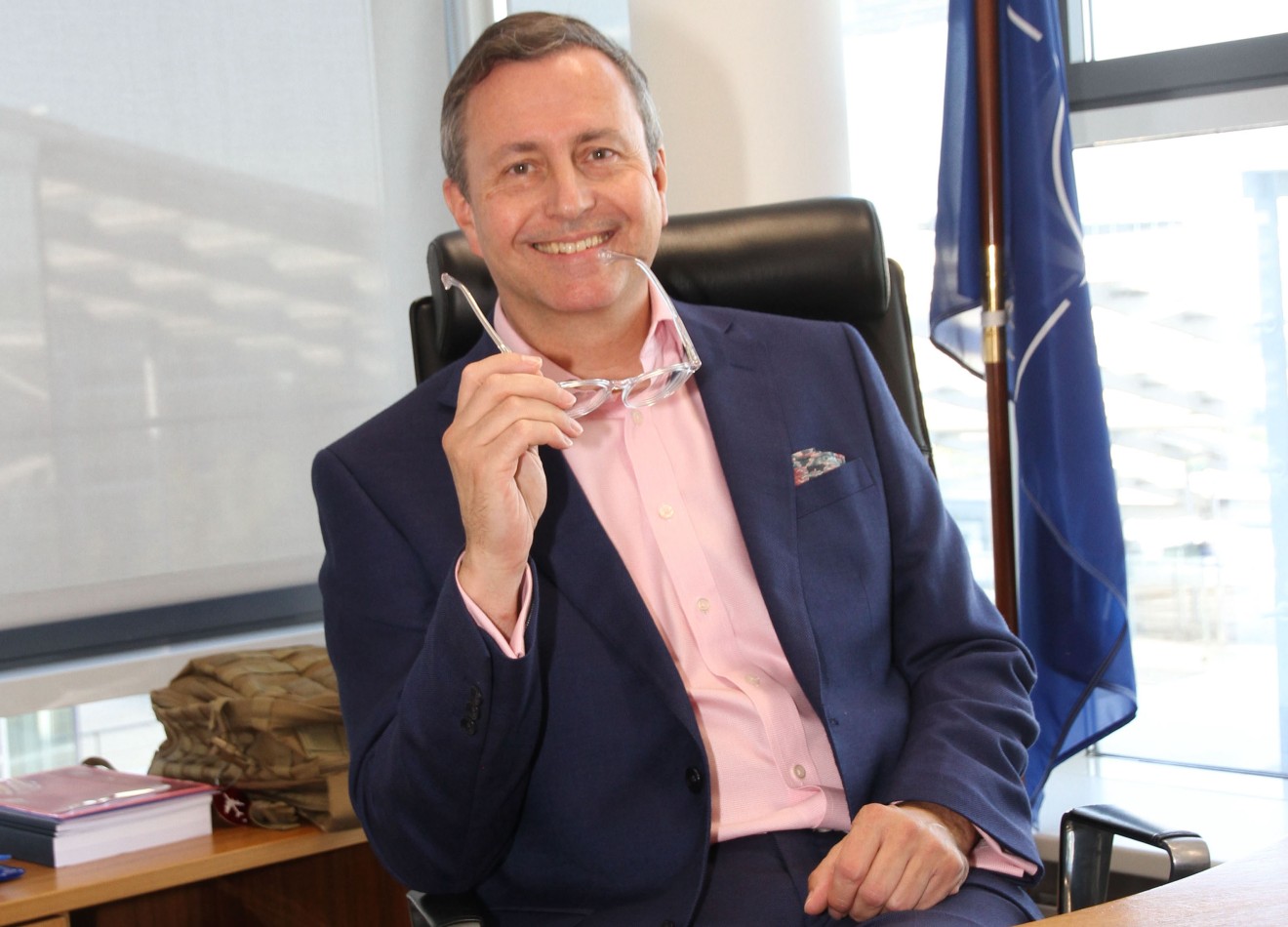What attracted you to the NETMA role?
It's very relevant, especially now when you think of what is happening in the world. Eurofighter and Tornado are the backbone of NATO's combat air. They secure our skies on the NATO eastern flank and provide a strong deterrent effect to an aggressive Russia. They represent one of the most important things that our nations could do for our security.
And of course, I love working in an international environment. NETMA is a rich mix of backgrounds, cultures, and experiences. That's very energising.
It's also big business — this year it's more than €6 billion – which demands professionalism in programme leadership, commercial finance and delivery and the political aspects too.
And, finally, who wouldn't want to live in this beautiful part of the world? I love being able to explore Europe in every direction.
Do you have a particular view of where to take the organisation?
I have insights from colleagues across the four nations and their Ministers about what they expect from me and the agency over the next few years. It is a process of continuous improvement, building on the strengths of my predecessor and those who've served the Agency and the Enterprise in the past.
It's clear what we have to do: firstly ensure our war fighters have the availability and capabilities they need to do the job. There is no more important task for our nations than keeping us safe and secure. Eurofighter and Tornado have to have support and the availability and capability that they need.
Looking to tomorrow. We must have the capabilities we need to stay abreast in an operational environment that is continually evolving. It is an interactive dual of measures and countermeasures. We need to be one step ahead.
Eurofighter is the backbone of today's combat air. In my experience it is writing history right now. It’s securing the skies above our nations, deterring Russian aggression on the eastern flank of NATO, and projecting our power across the globe
Our Ministers are also very clear that we need to arrest divergence in our capabilities and converge whenever we can. We have a finite industrial workforce, so we need to focus that workforce on those areas where they can deliver best. That is about working together, making compromise and being as common as we can be.
The final priority is export. Export matters. It matters for the four core nations in terms of the economic benefit and prosperity. Clearly, it's good for our national economies to have a successful export campaign. We benefit from economies of scale as it allows us to share costs and recoup some of our investments. Export will help us provide a strong industrial base that will keep this platform going for decades. Export is also good for the nations because it gives use interoperability and commonality with our colleagues across the globe.
What’s your view of the Eurofighter platform?
Eurofighter is the backbone of today's combat air. In my experience it is writing history right now. It’s securing the skies above our nations, deterring Russian aggression on the eastern flank of NATO, and projecting our power across the globe.
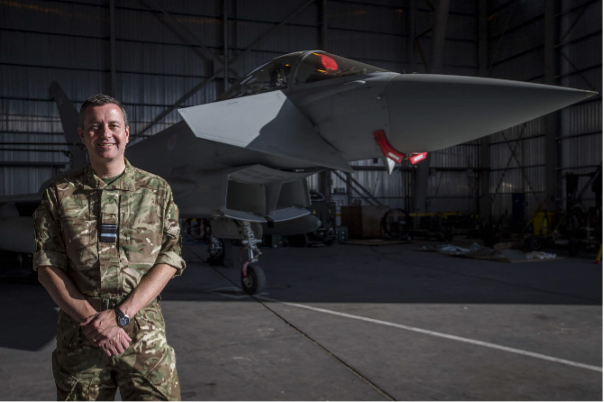
As NETMA is the voice of the four core nations how do you ensure effective cooperation and communication among these different stakeholders — particularly when there is diversion?
It's a real strength that we get top-down Ministerial direction for this programme — that gives me a North Star to guide the nations through. Such guidance is crucial as these programmes are huge — they're industrial, they're about jobs, they're big money and they’re about security.
On top of this steer, we get more regular course updates from the JSC. Of course, it can be tough reaching a consensus and commonality. But we have the experience from the Tornado programme about nations working together. It involves not only being clear about what one's nation needs are but also the empathy to understand what the world looks like from someone else's perspective.
How would you describe the current relationship between the NETMA and Eurofighter organisations?
The history of the relationship puts us on a strong foundation. There's a healthy, creative tension between the two organisations, but we're at our best when we have common goals. At the strategic level, those are really clear. We both want the best capabilities for our war fighters.
And we both know that the best advert for this platform across the globe is an effective capability in the hands of those who already use it.
What lessons do you think have been learned from working with Eurofighter?
The biggest lesson is keeping focused on that strategic common vision which sometimes, at the tactical level, might not be immediately obvious, but by standing back and realising that we all want the very best availability, capability and accelerated delivery onto the platform to give the war fighters what they need and our industrial bases the support they need.
It’s all about thinking hard so that we end up with a solution where we both find ourselves getting what we need. And sometimes that is relationships, sometimes that's skilful commercial, sometimes it's trust, but it's working on the construct so that we design a win-win outcome.
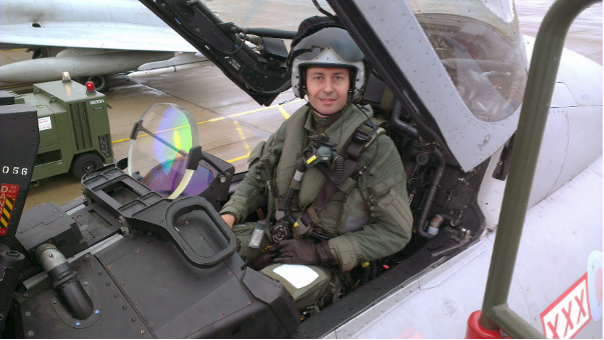
How can NETMA ensure Eurofighter stays at the forefront of technological advancements?
It's all about working at pace to identify what we need in order to maintain the technological advantage both today and tomorrow. For me, it’s important that we are as focused on the edge in terms of reliability, availability and support, as we are on future capabilities.
An area where I'm particularly focused is performance management. Together, we've invested a lot in professional project leadership, management and controls. We're now starting to talk about probabilistic forecasting in time and cost, scheduled risk analysis, risk and opportunity and really understanding the difference between a deterministic forecast and a probabilistic forecast and really driving that performance.
At the last Ministerial meeting Eurofighter and NETMA committed to having a stable programme and we will achieve that by being able to give more reliable forecasts, and ensuring that we're all as motivated by time and punctuality as we are by everything else.
How will you prepare for the next Ministerial meeting?
I'm a big fan of visioning. I like the idea of imagining what we want to be able to say at the next ministerial meeting and then working backwards from that to work out what it is that we need to do to make that a true statement.
I want to be able to say that our nation's air forces have been able to deliver their important operational missions for us, that we have a stable programme, that we have worked hard to avoid divergence, and that we have sought opportunities for export and made sure that export matters.
Looking back what first inspired you to get involved in this world when you were a young man?
When I first got excited about flight, I joined the Air Cadets. From the age of 13, I had the chance to wear an RAF uniform, learn drill, go gliding and flying as well as learning about how aircraft work.
I distinctly remember the first time being shown how lift works. I was asked to blow on a piece of paper and was convinced it would push it down. Instead, it lifted up! That one little experiment completely captured my imagination. The force that lifted the piece of paper is the same force that lifts a jumbo jet or a jet fighter. From that moment, I knew I wanted to join the RAF and learn aircraft engineering.
Tell us about your career?
I was sponsored through university by the RAF then became an engineer and did squadron tours on a frontline fighter squadron in the United Kingdom and the Falkland Islands. My next job was on Tornado. I worked on the radars for Tornado F3. I later worked on Tornado GR1. Then I was then lent to the German Air Force and I spent four years working for them. While there I wrote operational software changes on ECR Tornado. I was the senior engineer on a Tornado GR4 squadron and deployed on operations. Later, I was the Engineering Wing Commander/Engineering and Logistics Commander at RAF Marham.
I've also done lots of jobs involving Eurofighter Typhoon. My very first was in 2003, just as the RAF accepted its first Eurofighter and I founded the Support Authority. I remember signing off modification Number One and technical instruction Number One.
I've worked closely with both the Royal Saudi Air Force and also the Qatari Air Force who were the joint squadron at RAF Coningsby – and it was a real delight to see how effective Eurofighter was for security at the World Cup.
In Eurofighter I was the Airworthiness Authority and led on the support contracts, including starting the evolution of what we now call TyTAN (the Typhoon Total Availability eNterprise).
I was the Two Star responsible for procurement and support of all combat aircraft, and that included Eurofighter. And now I've come to NETMA at the end of a career with the Royal Air Force.
How do you reflect on your RAF years?
The Air Force has been brilliant for me. I've found the work interesting, rewarding, motivating and stimulating. The RAF trained me for my first degree, my Masters in Advanced Aero Systems, my Master's in Defence Studies, my Master's in Business Administration. It also supported me through a year of strategic insight across the globe with the Royal College of Defence Studies. It taught me fluent German.
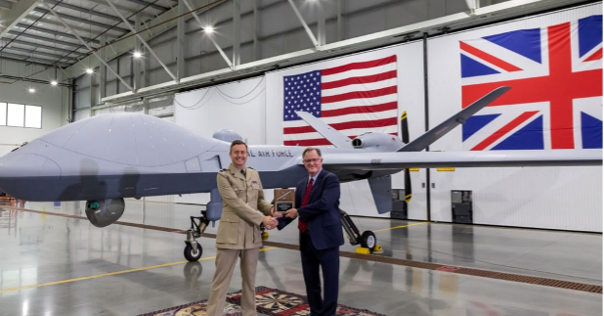
I've worked in the Ministry of Defence in central London. I've worked in procurement and support of combat aircraft and training aircraft. I spent many years leading on drones for the UK — from the tiny ones that you hold in your hand, through to Reaper and Protector.
Being part of the Tornado Combat Air Wing in 2003 was a stand out. Seeing air power delivered ‘en masse’ with many sorties every day of every type of air power. This period saw the first firing of Storm Shadow, anti-radiation missiles, laser-guided bombs, GPS-guided bombs, unguided bombs, cannon, and electronic warfare.
In such a varied career with a massive array of different experiences, what stands out for you?
It's a tough beauty contest between all of them. But, operationally, I’d say being part of the Tornado Combat Air Wing in 2003 was a stand out. Seeing air power delivered ‘en masse’ with many sorties every day of every type of air power. This period saw the first firing of Storm Shadow, anti-radiation missiles, laser-guided bombs, GPS-guided bombs, unguided bombs, cannon, and electronic warfare.
Everything was carried out at an incredible scale, pace and intensity. Yes, I'd always been trained for it but to see it in that concentrated form was an operational career highlight. It was especially memorable working alongside some brave men and women flying into danger each day, or on the ground being attacked every hour.
I was proud to have been awarded a Queen's Commendation for valuable service in the Operational Honours List.
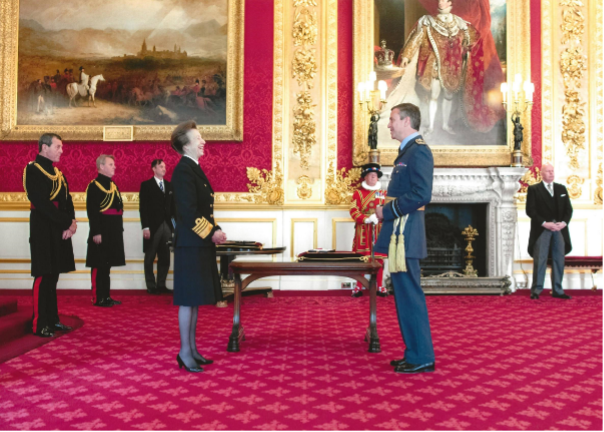
There are many other highlights too. I loved my time in Germany. Having gone into science and engineering education I had written off ever speaking a foreign language. So, to be given the chance to learn German was great.
I've also loved being at the centre of things — working at the centre of government in Whitehall for many years, especially in procurement and support.
These are big programmes — big money, international and operational, and therefore political too. It's always had those multiple dimensions which is why the role of NETMA feels to be a perfect fit.
